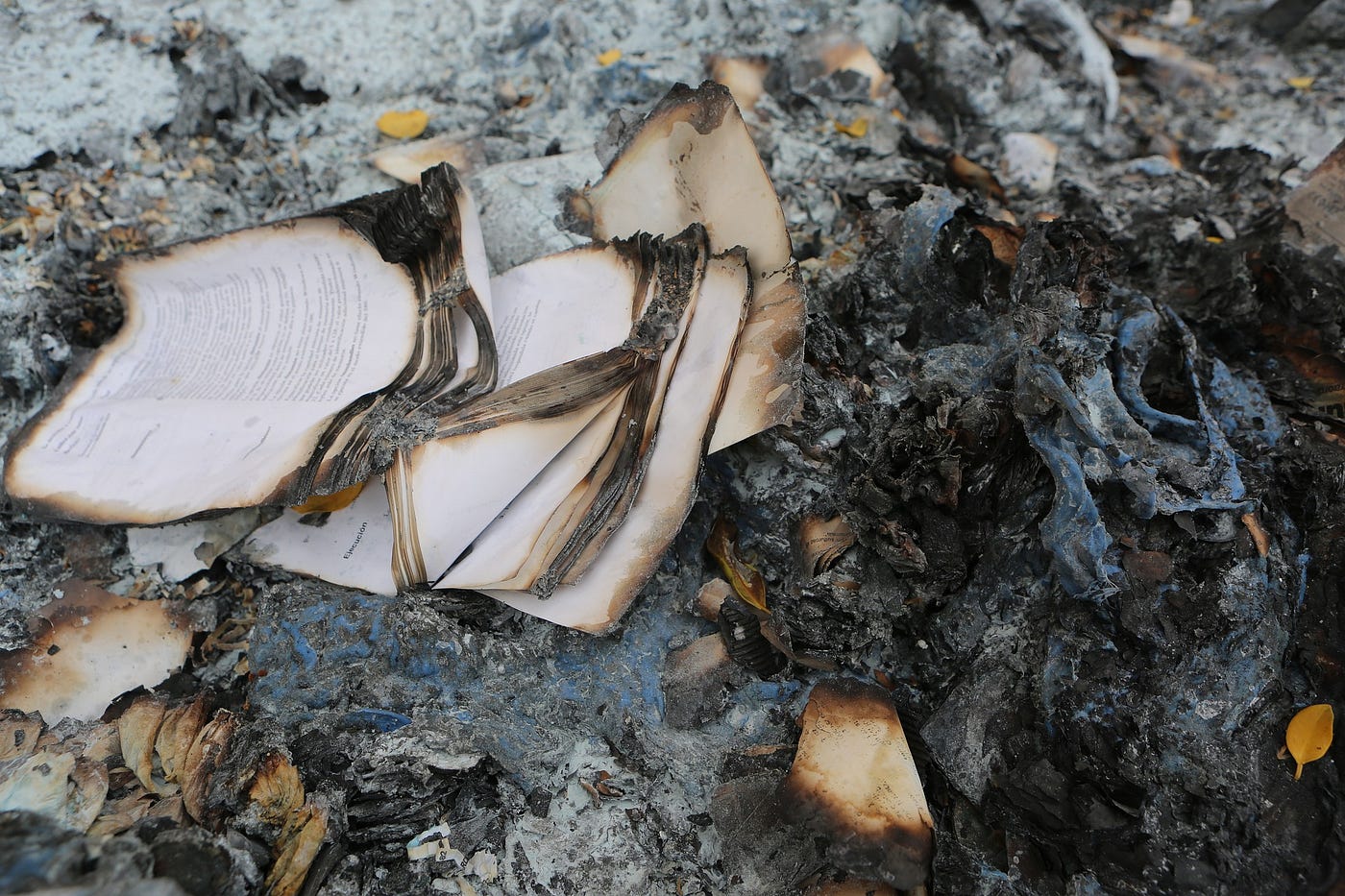
Censorship being used as a tool for oppression is a tale as old as time. Historically, when free thought threatens a group in their attempt to gain power, you can look for censorship to follow. And while there have been countless instances of this throughout world history, Americans are undoubtedly most familiar with the burnings of books by the Nazi regime. These burnings serve as a stark reminder of the dangers of censorship and the importance of protecting freedom of expression.
And now, less than 100 years since the 1933 book burnings in Germany, publications such as The New Yorker and The Washington Post report that teachers in Florida are packing up their school libraries to avoid felony charges.
History repeats itself, but in such cunning disguise that we never detect the resemblance until the damage is done.
Sydney J. Harris, American Journalist
And while the vast majority of Americans would never agree that Adolf Hitler and the Nazi party were worth emulating, there certainly seem to be a lot of people — especially white evangelicals — who seem to be in support of suppressing voices, oppressing opinion, and limiting students’ access to education and choice.
One of the most notable similarities between the banning of books in schools today’s and the burning of books in Nazi Germany is the suppression of dissenting voices. In 1933, as an estimated crowd of 40,000 people gathered in Berlin, Joseph Goebbels declared, “Jewish intellectualism is dead,” and gave the students leave to “clean up the debris of the past.” Jewish voices (among many others) were targets of 1930s Naziism. Today, the landscape of censorship looks only slightly different. Today, Jewish voices aren’t the only, or even the predominant voices being silenced.
According to PEN America, a non-profit organization that seeks to protect free expression in the United States and beyond, 176 books were challenged or banned in Duval County, Florida — many of which are part of the Essential Voices Classroom Libraries Collection. This collection “features characters representing a variety of ethnicities, religious affiliations, and gender identities.” Though you can view the full list here, it is important to note that much of the list contains black and brown voices. It should surprise to nobody that another portion of this list seeks to silence the voices of members of the LGBTQ+ community.
By banning certain books from schools, those in charge are effectively silencing alternative perspectives and limiting students’ exposure to diverse thought and life experiences. In the same vein, the burning of books by the Nazi regime was a deliberate attempt to control the narrative and prevent the spread of ideas that were deemed a threat to their ideology.
In these acts of censorship, limiting access to literature is used to reinforce a particular, singular worldview and to shape the minds of those who are exposed to it. At a stripped-down level, the Nazi regime sought to promote its ideology of racial superiority and nationalism through the censorship and banning of books that challenged these ideas. Similarly, the banning of books in public schools seeks to push a white Christian nationalist agenda.
This white Christian nationalist ideology, it must be noted, is not the same thing as being a patriotic Christian, as explained by Philip Gorski, chair of the Department of Sociology at Yale. It is a belief that America was founded by Christians “with a mission to spread the religion and those ideals in the face of threats from non-whites, non-Christians, and immigrants.” The vilification of voices of color and people of the LGBTQ+ community is, therefore, intentional and calculated.
The Nazi book burnings did not just happen overnight, however. In early April 1933, the Main Office for Press and Propaganda announced a nationwide “Action against the Un-German Spirit” to end in a purging by fire. Nazi media released blacklists of “un-German” authors, and declarations were drafted to describe “pure” national language and culture. Signs were posted that attacked “Jewish intellectualism,” and propaganda circulated to incite anger and hatred unlike words can adequately portray.
Similarly, white Christian nationalists have been lacing their own propaganda into the culture leading to today’s book banning. Politicians, mommy groups, Fox News, and other groups who are united by hatred of others have spent the past few years decrying such atrocious topics as Social Emotional Learning and Critical Race Theory. They have aimed to remove Social Emotional Learning from schools to cause public distrust in American public schools. They have been shouting that schools have been teaching Critical Race Theory — although they don’t seem to agree on what CRT is or have any proof that it is being taught at any level below collegiate studies — to further plant seeds of doubt, making sure that parents no longer trust the educators who are teaching their kids daily.
In this way, they have laid a foundation of propaganda and mistrust, making it easy to garner public support in banning books that teach students to be in tune with their emotions, that teach about people of color, that support and celebrate otherness. And just as Sydney J. Harris once predicted, history has indeed repeated itself in a way that was so cleverly disguised, nobody could see what was happening until the damage was done.
The censorship of literature has far-reaching consequences, both for education and for society as a whole. The banning of books in schools today undermines the very purpose of education, which is to promote critical thinking and a love of learning. When students are exposed only to a narrow range of ideas, they are unable to develop their own critical thinking skills or to engage in meaningful discussions about the world around them.
Moreover, censorship has a corrosive effect on society. When certain ideas or perspectives are suppressed, it becomes more difficult for people to engage in open and honest debates about issues that affect their lives. This leads to a climate of fear and mistrust, where people are silenced for fear of retribution. In extreme cases, censorship can even lead to the suppression of dissent and the development of authoritarian regimes, as was seen in Nazi Germany. As we may be seeing with the rise of this new, extremist Republican party growing out of America today.
Only by protecting freedom of expression and promoting diversity of thought can we ensure that our education system thrives and our society remains intact.







Leave a Reply